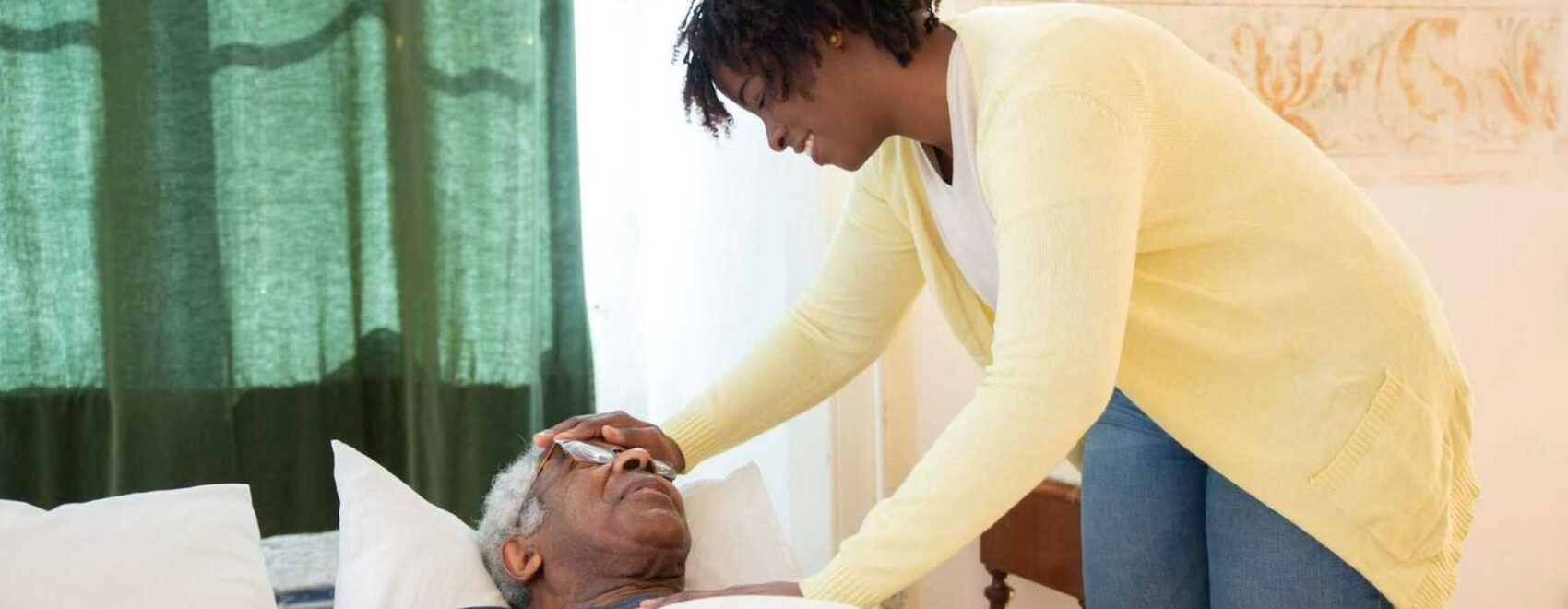The final stage of life is challenging, even for caregivers with lots of experience. If your loved one is in their final days of life, the only gift you can give them is the best care to improve their comfort and quality of life.
End-of-life care involves acts of daily care and lots of physical, mental and emotional support to your loved one during their last days on earth. The primary goal is to make them more comfortable, at least for the remaining days, months or years. Here’s all you need to know about end-of-life care.
When does someone need late-stage and end-of-life care?
No one knows exactly when they’ll need end-of-life care. It all depends on the individual and the progressions of the disease. However, anyone with a life-threatening or life-limiting illness is eligible for end-of-life care.
Also, older adults in their golden days can benefit from late-stage care. Terminal care may last a few days, months, or even years, depending on the individual.
End-of-life signs
Facing your loved one’s final moments in life can be scary – especially if it’s your first time. However, knowing what to expect can help you feel less anxious and better prepared. This allows you to make your loved one’s final days less painful and more comfortable.
While everyone has a unique end-of-life experience, some changes and signs cut across.
Here are some common end-of-life signs;
- Loss of appetite
Energy needs decline as the body shuts down. Hence, your loved one won’t be taking certain foods, especially those that are hard to chew and digest. Unfortunately, this can be upsetting for you as a caregiver because a considerable part of caregiving involves feeding your loved one.
- Shortness of breath/labored breathing
Breathing difficulties or shortness of breath are common symptoms of end of life. Some people might experience air hunger – a petrified inclination to breathe better. Additionally, people may experience Cheyne-strokes breathing – loud breathing with a peculiar rattle. This usually stems from an unstable ventilatory control as the brain or heart fails.
- Physical weakness
Since your loved one takes less food, they’ll lack the energy to do every day, physical activities like putting clothes on, walking long distances, or even lifting things. Sometimes, even speaking becomes a challenge. As a result, you may need to help your loved one find an every day routine that works for them.
- Pain
End-of-life pain is common in most people, although some become accustomed to it. However, the type and amount of pain will vary depending on the individual and their health condition. For instance, if they have cancer, they are more likely to experience pain during their final days.
End-of-life care considerations
Working closely with your hospice agency and your loved one’s physician, caregivers can provide the care and support the family needs during this difficult transition. When a loved one is in their last days of life, it’s imperative to treat them with respect, follow their late-stage wishes, and ensure they are comfortable.
The type and amount of care vary depending on the individual health and progression of the disease. Ideally, these people need care in four areas:
Physical comfort in end-of-life care
Comfort care is an essential part of medical care at the end of life. It is care that helps or soothes a person who is experiencing physical discomfort stemming from various sources.
Make sure they are seated or laying down in a comfortable space. If they experience breathing problems, open a window or use a fan or humidifier to circulate air in the room. Additionally, it would help if you raise the head of the bed to ease breathing.
Furthermore, offer favorite foods in small amounts to prevent digestive or loss of appetite problems.
Managing mental and emotional needs during end-of-life
Most people in their late stages of life experience mental and emotional distress. Some have specific concerns and fears that could lead to depression or anxiousness.
Therefore, as a caregiver, you should provide support to help manage emotional and mental distress.
Some tips for managing emotional and mental distress include;
- Set a relaxing mood – find out the things that raise your loved one’s mood. For instance, if they don’t want visitors, ensure no one enters their room.
- Physical contact – sometimes you’ll feel scared holding your loved one during their late stages. However, you should establish a physical connection with them, perhaps holding hands or massaging.
- Be present – the greatest gift to a dying person is your presence. So make sure you’re always available to talk or listen to what they say.
- Play some music – music at low tones can lessen pain while allowing the patient to relax. Therefore, suggest playing music and find out which music they prefer.
- Involve them – In most cases, you’ll make most of the decisions and choices on behalf of your loved one. However, if they can still communicate, try to involve them in most matters. For instance, you might ask which food they want, which clothes to wear, how to make them more comfortable.
Alternatively, you might consider a counselor familiar with end-of-life issues.
Support for practical tasks
Someone nearing end-of-life can’t perform everyday tasks like bathing, walking, eating, and changing clothes. And since some of the activities are essential, you want to ensure they get enough support for practical tasks.
Benefits of hiring an end-of-life caregiver
End-of-life care focuses on improving the quality of life of your loved one during their final stage in life. But sometimes, you might need some help to provide the best care for your loved one. This is where a caregiver comes in. There are various benefits of hiring an end-of-life caregiver.
First, end-of-life caregivers have lots of experience caring for people in their final days. They have been trained to provide adequate care regardless of individual conditions. They know what to do, when to do it and how to do it perfectly.
Additionally, end-of-life caregivers provide support to family members and carers during late-stage and even after death. They will be there with you to provide physical and emotional support to you and your loved ones.
End-of-life services
We understand the end-of-life stage is an emotional time for you, friends and other family members. That’s why you should work with your loved one’s physician and caregivers to get the best care and support during this challenging transition.
Some of our end-of-life care services include;
- Bed baths
- Personal hygiene assistance
- Compassionate support
- Feeding assistance
- Nurse-deligated meds administration
- Assist with comfort measures
Final thoughts
It’s hard and painful to watch a loved one during their final days on earth. However, knowing what to expect and how to provide late-stage care can make a difference. End of life focuses on minimizing pain and improving comfort and quality of life during the final moments of your loved one.
If you cannot take care of your loved one during end-of-life, we can refer a qualified home health caregiver. Contact us to schedule a free consultation with a representative.

